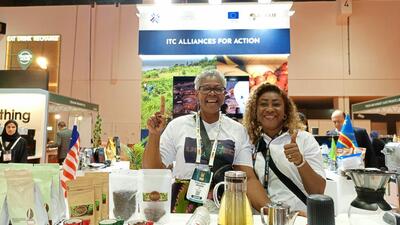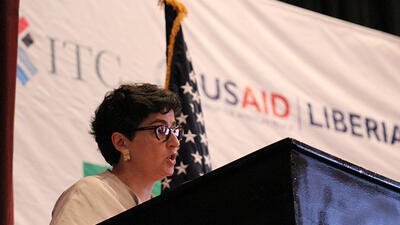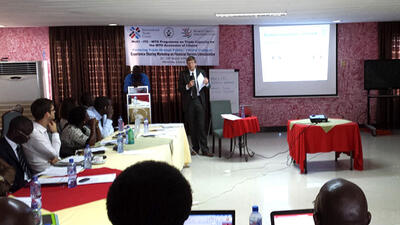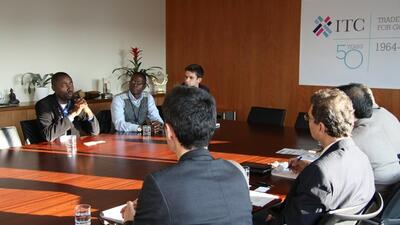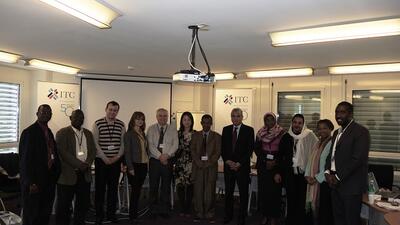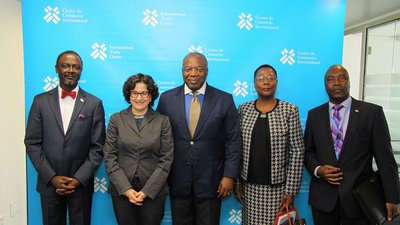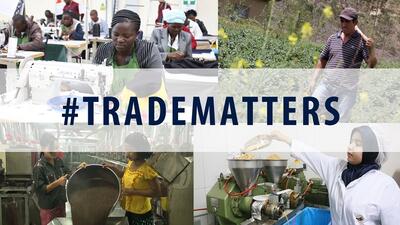
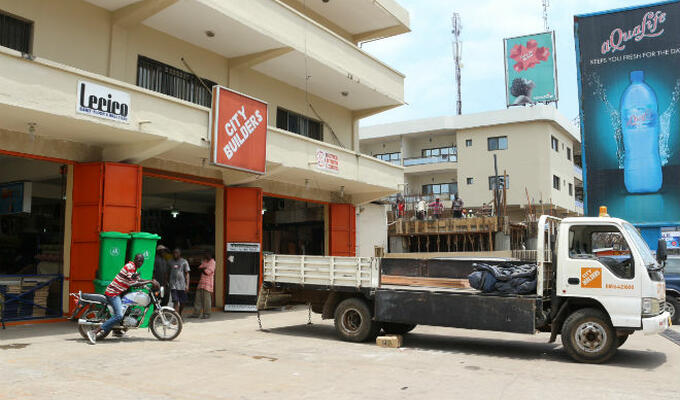
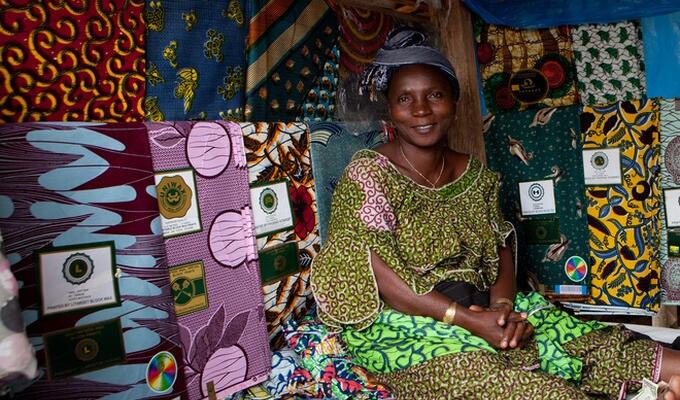
Stories
ITC supports MSME growth and policy cohesion in Liberia
26 April 2014
Increased competitiveness of micro, small and medium-sized enterprises key to economic growth in Liberia
ITC Executive Director Arancha González will be on an official visit to Monrovia, Liberia, from 27-30 April 2014 to support the development of micro, small and medium-sized enterprise (MSME). This is in line with the country’s efforts to strengthen its economy by positioning itself as a global exporter of goods and services.
While in Monrovia, Ms. González will join President Ellen Johnson Sirleaf at the launch of the first-ever Liberia National Export Strategy (NES) and the Liberia National Trade Policy (NTP) at the national MSME Conference to be held from 29-30 April. The event is jointly organized by the Ministry of Commerce and Industry (MoCI) and ITC.
‘The joint launch of the National Export Strategy and National Trade Policy reflects the importance of a cohesive and customized approach to trade development in Liberia,’ said Ms. González.
‘While the export strategy targets growth in priority sectors, the trade policy lays the foundation for a broad spectrum of legislative reforms – this combination is aimed at increasing exports, improving livelihoods and reducing poverty.’
The NES is designed to provide guidance and assistance to MSMEs at every step along the value chains of priority sectors, which include cocoa, fish and crustaceans, palm oil, rubber and cassava. Work has also begun on Sector Export Strategies for tourism and furniture, which are expected to boost the value-added components of the economy and contribute to job creation.
‘There is a lot of enthusiasm for the NES from public institutions, the private sector – including MSMEs and sector associations – as well as civil society organizations,’ said Candace B. Eastman, Deputy Minister of MoCI, who is also the official NES coordinator.
The NES is complemented by the NTP, which is aimed at establishing a more transparent and predictable business environment. The NTP is intended to serve as an umbrella policy for the Government to efficiently implement and monitor trade-related policies, such as the Investment Code, MSME Policy, National Industrial Policy, Food and Agriculture Policy, National Transport Policy and Mineral Policy.
These policy reforms are designed to assist the country in meeting the requirements to gain membership in the Economic Community of West African States (ECOWAS) and the World Trade Organization. The overall goal of the NTP is to promote a balanced relationship between trade integration and sustainable development, while providing protection for women, youth and the poor from the adverse effects of market opening.
While in Monrovia, Ms. González will join President Ellen Johnson Sirleaf at the launch of the first-ever Liberia National Export Strategy (NES) and the Liberia National Trade Policy (NTP) at the national MSME Conference to be held from 29-30 April. The event is jointly organized by the Ministry of Commerce and Industry (MoCI) and ITC.
‘The joint launch of the National Export Strategy and National Trade Policy reflects the importance of a cohesive and customized approach to trade development in Liberia,’ said Ms. González.
‘While the export strategy targets growth in priority sectors, the trade policy lays the foundation for a broad spectrum of legislative reforms – this combination is aimed at increasing exports, improving livelihoods and reducing poverty.’
The NES is designed to provide guidance and assistance to MSMEs at every step along the value chains of priority sectors, which include cocoa, fish and crustaceans, palm oil, rubber and cassava. Work has also begun on Sector Export Strategies for tourism and furniture, which are expected to boost the value-added components of the economy and contribute to job creation.
‘There is a lot of enthusiasm for the NES from public institutions, the private sector – including MSMEs and sector associations – as well as civil society organizations,’ said Candace B. Eastman, Deputy Minister of MoCI, who is also the official NES coordinator.
The NES is complemented by the NTP, which is aimed at establishing a more transparent and predictable business environment. The NTP is intended to serve as an umbrella policy for the Government to efficiently implement and monitor trade-related policies, such as the Investment Code, MSME Policy, National Industrial Policy, Food and Agriculture Policy, National Transport Policy and Mineral Policy.
These policy reforms are designed to assist the country in meeting the requirements to gain membership in the Economic Community of West African States (ECOWAS) and the World Trade Organization. The overall goal of the NTP is to promote a balanced relationship between trade integration and sustainable development, while providing protection for women, youth and the poor from the adverse effects of market opening.




